'Hyper-Reality' - A Nightmarish Glimpse Into The Future Of Virtual Screens And Holographic Displays
Six years ago filmmaker, designer, and artist Keiichi Matsuda made two films—Augmented (hyper)Reality: Domestic Robocop and Augmented City 3D—that each explore our technologically enhanced future. Rather than simply trying to imagine exactly what it might look like, he created exaggerated versions with virtual screens popping up everywhere—so many, in fact, that physical reality was barely visible. Now, Matsuda releases his latest film in the project, Hyper-Reality, which depicts a hyper world where technology is ubiquitous.
Two years in the making, and funded mostly via Kickstarter, the six-minute short film is a satirical and provocative look at a world where the digital is no longer just on our screens but instead is all around us as a virtual overlay.
Set in Medellin, Colombia and shot from the POV of the protagonist, it features a world of existential Googling, where a walk through the supermarket is fraught with manifold digital displays, bleeps, emails, chat windows, virtual adverts, singing fruit, and digital Tamagotchi.
It's a bit like the sensory overload you experience when you first walk into a video arcade, that sensation of being bombarded and overwhelmed with flashing visuals and dinging sounds, but more intense.
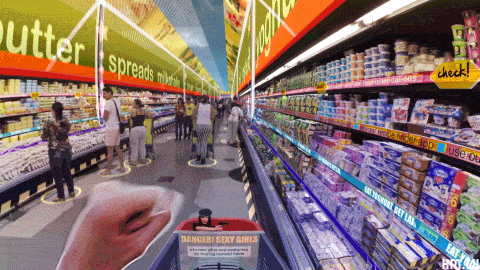
Matsuda places himself in the discipline of critical design and as well as critiquing our virtual future in this short film, he's also designing it too, currently producing systems for an AR startup. The film itself is so overloaded with these virtual displays that it comes across like design satire, parodying the AR interfaces of the future by amplifying them up to extreme levels, creating a super modified city where virtual screens are vying for our attention everywhere. It's not quite dystopian, but certainly not utopian, either, instead sitting somewhere in the middle.
Another idea that runs throughout is gamification, whereby the mechanics of video games spill over into our real world interactions. Points and rewards are obtained to entice you to buy groceries... Even converting to Catholicism is a game in the film.
"Games are a really good way to get people to do things," explained Matsuda in a Q&A that followed a screening of the film. "I think when you’re in this world where everything is media and you want to provoke certain behaviors for spending or whatever, it’s a natural way to be able to do it. The point system is really powerful, too. We could edge ourselves away from using a fixed currency and into a world where you use your reputation points or something."
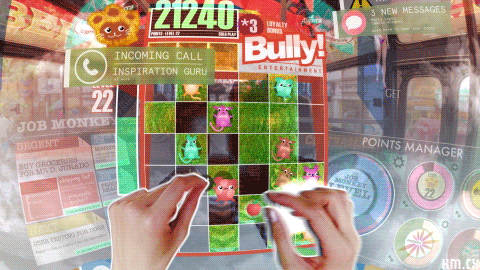
Gamification is only part of it, though—there's lots to take in from this oversaturated media world. The video is jammed with various references, easter eggs, and details that demand a second or third viewing. Matsuda says that part of the reason the film took so long to produce was he wanted everything to mean something. He and his team spent months just designing an AR operating system, for instance, so they could understand the logic of it when applying it to the film.
This isn't the end for this project, either. Matsuda plans to make two more films set in this world exploring POVs of different characters, one of whom we've met already. In Hyper-Reality the character walks past a blogger, but in this world instead of blogging on her phone she's live broadcasting to the city around her, advertising in real time the clothes she’s wearing and other products to make a living. The follow up film, which is written and partly shot, will see this world from her vastly different perspective, exploring the digital divide of the future.
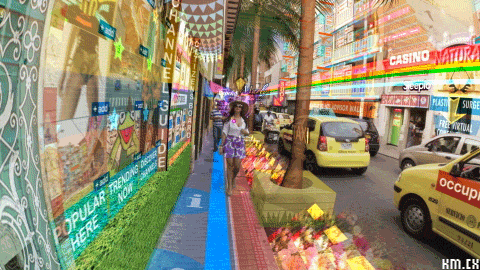
The other two films will form part of a bigger narrative within this hyper world, but mostly Matsuda says he wants to generate conversation around AR and the concept of ubiquitous computing. It's a future that's already being willed into existence right now by Silicon Valley and the big tech companies—think HoloLens, Magic Leap. The question is, is it something we want?
"Everyone sees this as the successor to the smartphone, it’s the thing that’s going to keep Silicon Valley at the top of its game," Matsuda notes. "I don’t know, it’s got lots of amazing possibilities but all the times when I’m designing these things I’m always thinking of the price we have to pay on our privacy. As soon as you're in this world you’re in a surveillance state, a total surveillance state, all of your conversations are monitored, your social value, it compromises us in lots of different ways. The film’s trying to understand if that level of invasion is something we want. Is it something we're willing to accept or is it something to push back on, before it’s too late?"
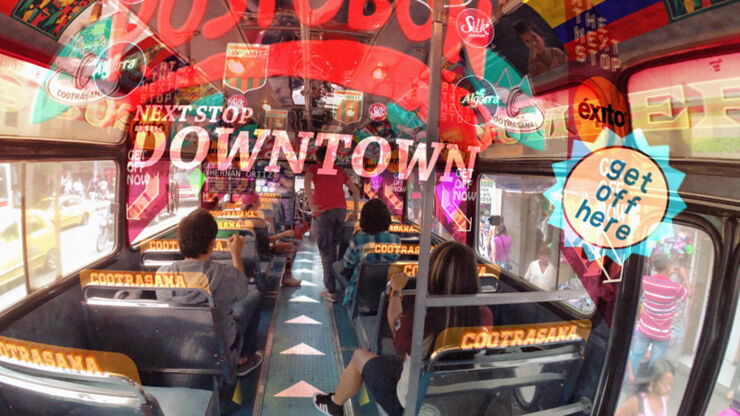
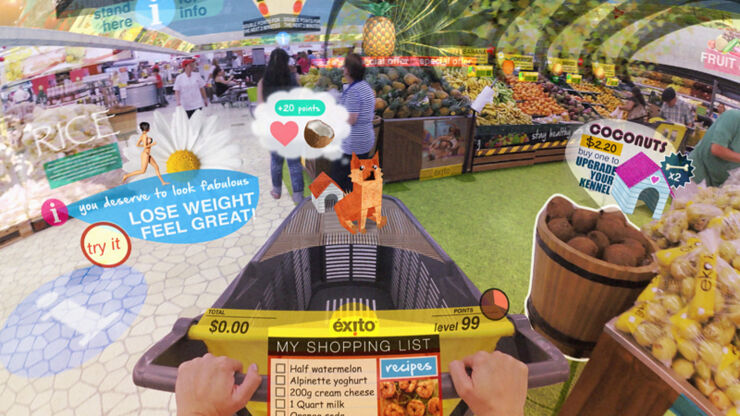
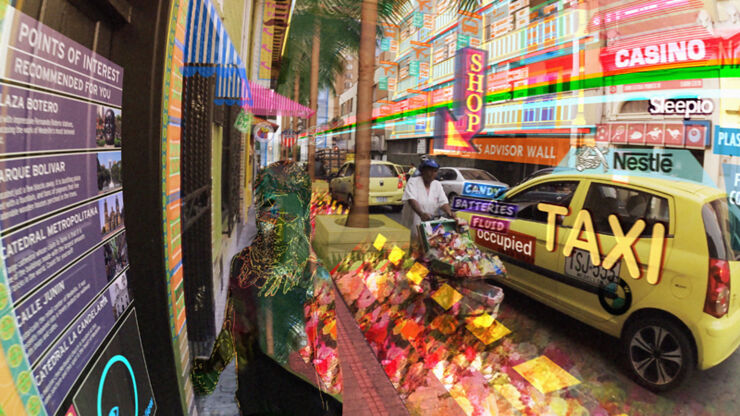
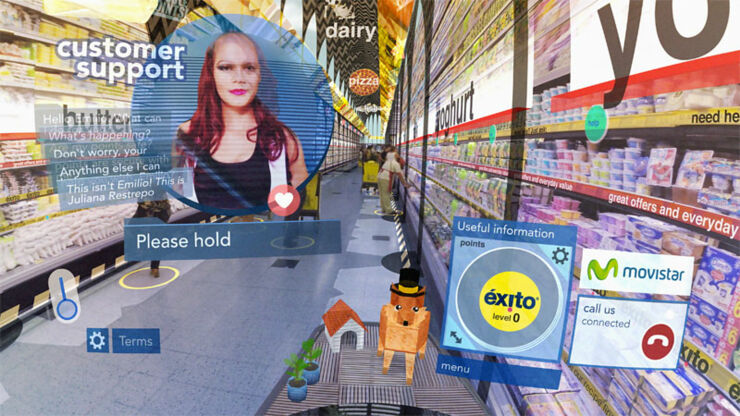
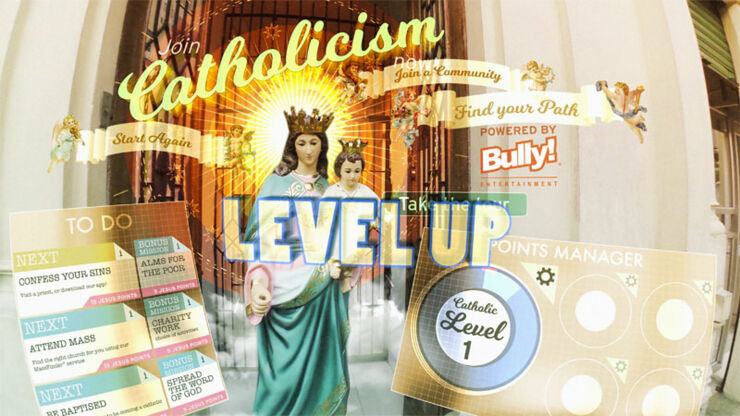
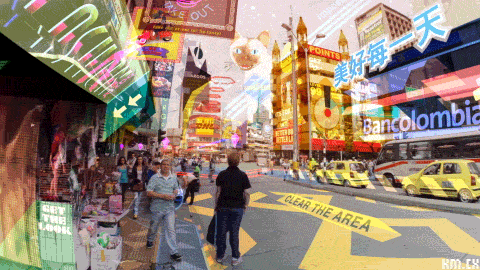
All GIFs and images courtesy of Keiichi Matsuda via